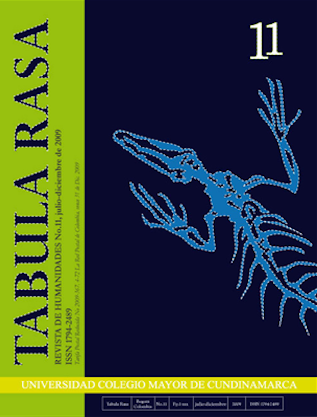In The House of Libya: A Meditation
En la casa de Libia: Una meditación
Show authors biography
From Greek myths, Libya, in its symbolic dimensions, may be one of the less recognized in contemporary imagination. Yet, without narratives on Libya, it would be difficult to induce a number of lessons from which some of the worst predicaments have come to be regulated. For instance, among the descendents of Libya are Cadmos and Europa, Jocasta and Oedipus, Antigone and Ismene. Libya has no autonomous entry in a number of popular dictionaries of mythical and religious analecta. The absence is remarkable. One of the partners of Poseidon, the god of the sea, in the genealogical line of the house of Argos, Libya is a direct descendent of Zeus and Io; and, through Epaphus and Memphis, the grandmother of Aegyptos and Danaos. An eponymic persona, Libya activates multiple figurative lines. The name of the mother of Agenor and Belus serves also geographic designations. In this maneuver it stands as a polysemic symbol in historical and mythical narratives. The interference passed into Latin, and is well attested in classics.
Article visits 84 | PDF visits 47
Downloads
Darr, Stringfellow. 1968. A History of Greece from the Origins of Hellenic Culture to the death of Alexander, Philadelphia: J.P. Lippincott.
Barraclough, Geoffrey. 1984. The Times Atlas of World History, Maplewood, N.J.: HammondHammond.
Bell, Robert E. 1991. Women of Classical Mythology: A Biographical Dictionary, Oxford: Oxford University Press.
Benabou, M. 1976. La Résistance Áfricaine à la romanisation, Paris: Maspero.
Benveniste, Émile. 1973. Indo-Europaan Language and Society, Coral Gables, Florida: University of Miami Press.
Bernal, Martin. 2006. Black Athena: The Afroasiatic Roots of Classical Civilization. The Linguistic Evidence, New Brunswick, NJ: Rutgers University Press.
Bernal, Martin. 1991. Black Athena: The Afroasiatic Roots of Classical Civilization. The Archaeological and Documentary Evidence, New Brunswick, NJ: Rutgers University Press.
Bernal, Martin. 1987. Black Athena: The Afroasiatic Roots of Classical Civilization. The Fabrication of Ancient Greece 1785-1985, New Brunswick, NJ: Rutgers University Press.
Bode, Georg Heinrich. 1968. Scriptores rerum mythicarum Latini tres Romae nuper reperti. Edidit ac scholiis illustravit Georgius Henricus Bode. Hildesheim: G. Olms.
Bradford, Ernle. 1971. Mediterranean Portrait of A Sea, New York: Harcourt.
Bradley, Guy y John-Paul Wilson. 2006. Greek and Roman Colonization, Swansea: The Classical Press of Wales.
Braudel, Fernand. 1998. Les mémoires de la Méditerranée préhistoire, París: Éditions de Fallois.
Bourgeois, Alain. 1970. La Grèce antique devant la négritude, Paris: Présence Africaine.
Bremmer, J. (ed.). 1987. Interpretations of Greek Mythology, Londres: Thames and Hudson.
Burke, Peter. 1992. New Perspectives on History. University Park, PA: Pennsylvania State University Press.
Cahill, Thomas. 2003. Sailing the Wine-Dark Sea: Why the Greeks Matter. New York, Doubleday.
Ceram, C.W. 1949. Götter, Gräber und Gelehrte, Rowohlt Verlag Gmblt: Hamburg-Stuttgart.
Ceram, C.W. 1951. Gods, Graves and Scholars, New York: Alfred A. Knopf.
Chantraine, Pierre. 2000. Dictionnaire étymologique de la langue grecque, París: Klincksieck.
Chastaing, Maxime, 1951. L’Existence des autres, Paris: Presses Universitaires de France.
Claudio Ptolomeo. 2000. Geography, Princeton: Princeton University Press




